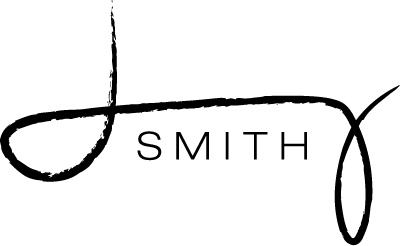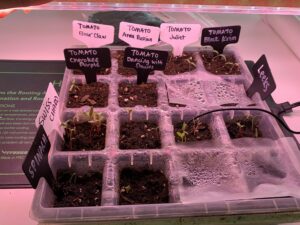It’s the last full week of Seminary, but who’s counting?
ME!!!!!
*I* am totally counting down!
Jonah 1-4
For our lesson opener I used the manual idea and had the kids write on a apiece of paper the last place they’d ever want to visit. I told the students it had to be a geographical location, and gave them 60 seconds.
Next I had them write one, two,or three words that explained why.
I had a few share what they wrote. This lesson was Monday, which means the kids were silly, and so I had to be careful who I asked. There was some discussion here about getting mission calls to awkward places. My brother was called to Salt Lake South. A kid in my BYU ward was called on a BYU mission — kids laughed when it was announced in sacrament. It was pretty bad. We talked about how to react appropriately when mission calls come.
I explained to the kids that Jonah was called on a mission to the last place on Earth he wanted to go.
I had two students summarize the story of Jonah. The first over summarized, so I had the second add in some more detail.
The savior talked about Jonah. We cross-referenced the story with Matthew 12:38–40 and read it aloud.
After this, we discussed the story using the following questions:
- What does this story teach us about God’s love for His children?
- How does this story give us hope for those in our family who stray?
- Why was Jonah upset when the Ninevites repented?
- How did the book of Jonah get recorded? (someone must have either heard it from Jonah, or been a witness to it–though the latter is unlikely bc of the gourd story)
- What does the fact that Jonah told his story tell us about Jonah?
To wrap up I had the kids use the following writing prompt to write in their notebooks:
“Imagine you are Jonah writing a letter to a missionary who has received a call to the ‘last place’ on his list. What would you say?”
Micah 3
Monday afternoon I realized that I had done something wrong during yesterday’s lesson. The kids were being silly and when one of the students asked me if we could find Ninevah on the map, I pretty much blew her off in order to try to keep the kids on track. It wasn’t the right thing to do. So today I began by apologizing for that and had the kids find Ninevah and Tarshish on maps.
I used my error yesterday to help the kids learn to use the study helps for maps. I let them guess for a minute and flip through their scriptures until they/we came up with the Index of Place Names. I had them look up and locate maps with Ninevah on it.
Then we looked up Tarshish. (I already knew it wasn’t there from my lesson planning.) I asked them what we should do. We looked it up in the Bible Dictionary and found that Tarshish is believed to have been located in Spain. So we talked about the Jonah story a little bit more and moved on.
I read the introduction to Micah on page 207 of the manual. My focus today was to help the kids learn to recognize false prophets. On the board I wrote down what we can learn from Micah about recognizing false prophets:
v 2 – hate good
v 4 – behaved themselves ill
v 5 – make people do evil
v 7 – God will not answer them
v8 – Micah is a true prophet, contrast his characteristics with a false prophet
v 10
v 11 – cf 2 Nephi 28:21–22
After the above short lesson, I pointed out Micah 5:2, the only place in the Bible that names Bethlehem as the birthplace of the Savior.
Then I pointed the kids to Micah 7:1–7. We read that aloud, and I used it to sermonize briefly on the fact that people fail — our friends and family sometime fail us, and even we ourselves will sometimes fail others — but we can rely wholly on God, who never fails.
I wrapped up by mentioning that our minor prophets are by no means minor in their messages.
We learned from Micah about how to recognize false prophets, where the Messiah will be born, and in Whom we can put our trust.
Nahum 1, Habakkuk 1
I have been planning my lessons only one day ahead since last week. Wow. It sure makes Seminary torture. On this day, I thought I had my lesson written out, but it turns out I had not. :( I figured it out about 30 minutes before class, and so I skipped my hair and makeup and went down to plan a quick lesson. It was okay, but not as good as it could have been.
After reading the Bible Dictionary entry for Nahum, we e covered Nahum1:1-4,7,12-13 where I pointed out the characteristics of the Lord.
I helped the kids go through Habakkuk 1 and 2:1,18-20 to help them understand what Habakkuk was asking of the Lord. We talked about when it’s okay to question the Lord. For example, both Mary and Zacharias questioned the Lord in the new Testament. What was the difference?
We wrapped up by reading Habakkuk 3:17–19, which I think is particularly beautiful.
Zephaniah 3
For our opening song, I played the music video from that old Seminary sound track on the OT DVD set.
I asked the kids if they could guess what our lesson topic was today, given their reading last night and the song we listened to : preparing for the second coming.
Then I showed the movie “Piano Recital” from Joel 2. I asked the kids to focus in on the importance of preparation during the (6 minute) movie. The kids laughed several times — loundest when the boy wipes the jelly off on his pants. They declared it best church movie ever. :)
I asked the kids what they learned about preparation from the video.
Then I had the kids silently look over Zephaniah 3 for 4 minutes and write down the things that were new to them in this chapter about the second coming and Millennium. I used the ensuing discussion to point out the pure language and gathering to destroy the wicked parts.
Then we did the Study Activity on the DVD for Zephaniah 2:1–3. I had the kids underline in their scriptures what they should do to be prepared. I then had them re-word verse 3 into an if-then statement to push the point home.
One of the kids mentioned today he thought there was “more” in the Bible. It pretty much stops with Zedekiah. I explained that we are reading from prophets before during and after the scattering and Diaspora, but it is true that there isn’t much history-wise in the Bible between the carting off to Babylon and the New Testament.


